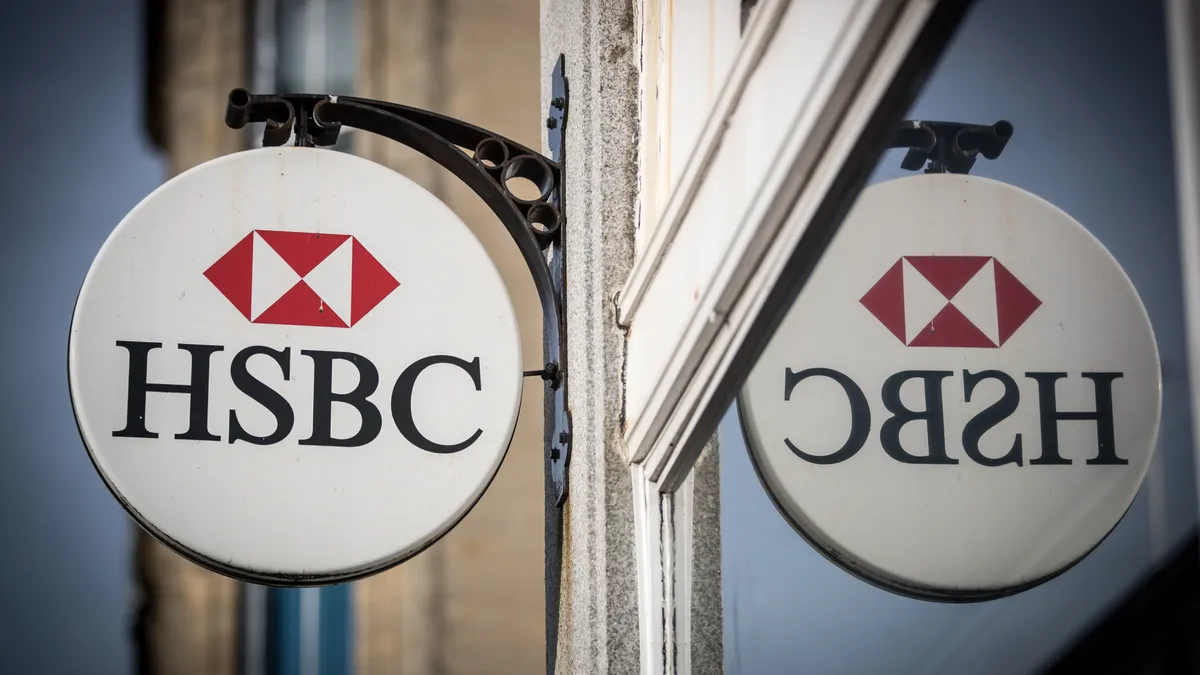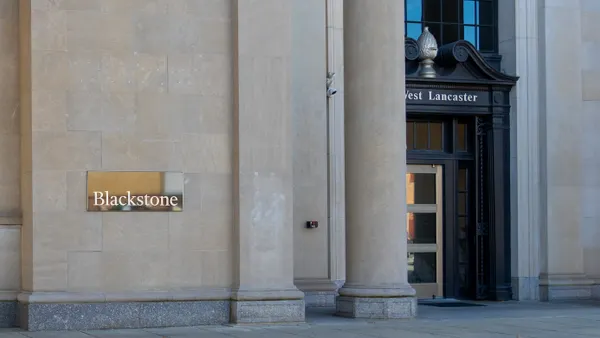HSBC CEO Georges Elhedery on Tuesday answered the question that had burned at analysts over the week since the bank announced a pending reorganization.
“This is not either a precursor or intention or preparation for any split,” Elhedery said on a call Tuesday, coinciding with the bank’s third-quarter earnings results.
Elhedery told the bank’s staff last week in a memo, “there will inevitably be a reduction in duplicated roles, particularly at senior levels.”
“The primary reason for the reorganization is to simplify the bank and remove duplication of roles,” Elhedery told analysts Tuesday, according to Reuters. “The cost savings are an ancillary benefit.”
One role that appears de-emphasized is that of the bank’s chief sustainability officer, Celine Herweijer, whom HSBC confirmed Tuesday has been dropped from its executive committee. HSBC said last week that the panel would narrow to 12 members as part of the restructuring.
Elhedery said Tuesday the bank “remains committed to supporting the commitment to net zero,” but otherwise declined to comment on the implications of Herweijer’s shift away from HSBC’s top internal decision-making body.
The London-headquartered bank unveiled its first net-zero transition plan in January, detailing its strategy to achieve its climate targets — including hitting net-zero status by 2050 — and investment decisions it aims to undertake to facilitate decarbonization across various sectors it finances.
At least one HSBC investor, Epworth Investment Management, gave the bank flak for the Herweijer move.
“Removing Celine from the operating committee is just the latest signal of the bank's true intentions -- profits at any cost,” Andrew Harper, Epworth’s chief responsibility officer, said, according to Reuters.
“Time and time again, we've seen the bank make bold climate claims and then water them down,” Harper said. “Commitment without action remains cheap talk at HSBC.”
Elhedery reiterated that HSBC would give more details on the restructuring in February, when the bank announces its annual results.
HSBC, for years, has resisted calls from one of its biggest investors, Chinese insurance giant Ping An, to spin off its Asian operations from its Western ones.
The bank’s announcement last week that it would realign along four pillars — particularly, making Hong Kong operations a stand-alone silo and dividing parts of two other pillars into “Eastern markets” and “Western markets” — may have led some observers to think Ping An’s rationale won out.
“This is a matter of streamlining,” Elhedery said Tuesday, according to the Financial Times. “There is no geopolitical reason why we have done this, and there is no intent or preparation whatsoever for it being more than just a simpler and faster way to deliver to our customers … [who] cherish our capability of servicing them across their global needs.”
In addition to staff reductions and restructuring operations, the bank will continue to sell off assets it no longer considers core. HSBC will conduct a “selective review” of its operations, which could spur exits from some markets, Elhedery said Tuesday, according to Bloomberg. The bank, in the past few years, has sold much of its Canadian, U.S. and French retail footprints.
Alex Potter, an analyst at abrdn, said last week’s reorganization “beg[s] an obvious question” around the future of the bank’s Mexico operations.
As for its third-quarter results, profit at HSBC jumped 10% to $8.5 billion — from $7.7 billion a year earlier. Revenue climbed 5% year-over-year to $17 billion, from $16.2 billion, driven by a strong performance in wealth and wholesale banking, the bank said.
The bank slipped in other areas. Net interest income dropped 17.4% year-over-year to $7.6 billion, according to an earnings presentation. Return on tangible equity fell to 15.5%, from 16.3% three months earlier.
HSBC’s costs, too, edged up 2% year-over-year to $8.1 billion — largely from a mix of inflation and tech investments, the bank said. The lender had earlier predicted its costs would jump 5% for 2024.
The bank made $1 billion in loan-loss provisions. It also took a $300 million charge from a legacy capital issue it’s repaying, according to Bloomberg.
That didn’t stop the bank from announcing a share buyback of up to $3 billion. Investors also saw an interim dividend of 10 cents per share.
Zoya Mirza contributed to this report.











